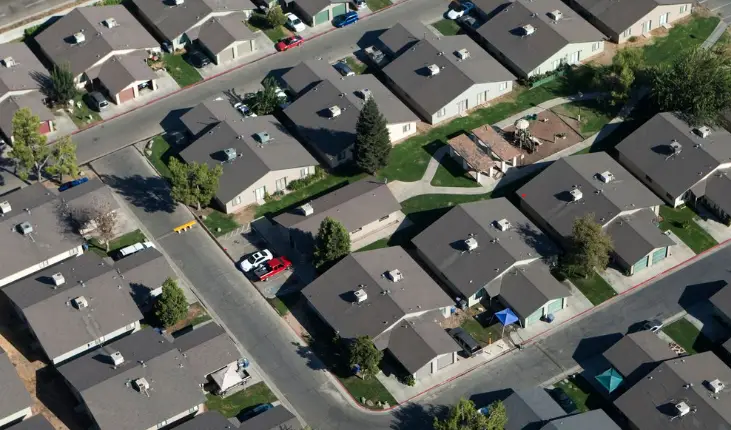Introduction
Wisconsin has its share of good things, but it’s also home to some unfortunate realities that many people would rather avoid. In this article, we’ll take a look at six bad things about living in Wisconsin and tell you why they’re worth avoiding.
Bad things about living in Wisconsin
Bad weather
One of the worst things about living in Wisconsin is the weather. It’s always cold and rainy here, which can be really frustrating. Plus, there’s never a break from the snow! The winters are long and cold, and the summers can be very hot and humid. This means that it is difficult to do any kind of outdoor activity, and it can be hard to go outside even if you want to. Additionally, Wisconsin has a lot of hills, which means that driving can be challenging.
The state has a high number of thunderstorms and tornadoes. This can be a dangerous combination because weather conditions can change quickly. In addition, Wisconsin has a low population density which means that there are fewer emergency services available when something goes wrong.
High taxes
Wisconsin has some of the highest taxes in the country. This is due to the high cost of living in the state, as well as the generous benefits that citizens receive. The average family earning $75,000 a year pays over $12,000 in taxes, and a family earning $200,000 pays over $27,000.
In addition to high taxes, Wisconsin also has some of the most expensive housing in the country. The median home price is over $240,000, which is more than double the national median. This means that families are forced to pay an enormous amount of money for a home that they may not be able to afford.
These taxes make it difficult for businesses to operate in the state, which has a negative impact on the economy. Additionally, the high taxes can lead to higher prices for goods and services. This can be especially problematic for people who rely on government assistance to live a comfortable life.
Low quality of life
Wisconsin ranks 48th in the nation for quality of life, according to The Better Life Index. Low incomes, high cost of living, and a short work week are among the factors contributing to this ranking. Wisconsin residents also report high levels of stress and anxiety. The state has one of the highest rates of suicide in the country. In 2016, suicide was the second leading cause of death for people ages 10 to 24 in Wisconsin.
The low quality of life may be why many people are moving out of Wisconsin. In 2017, Wisconsin had the third-highest out-migration rate in the country. Over 100,000 people left the state that year.
You may also like // Best places to live in Madison WI for young professionals
Lack of job opportunities
Wisconsin ranks 39th in the nation for job growth. The state’s unemployment rate is 3.8%, well above the national average of 3.4%. Wisconsin also has one of the highest rates of poverty in the country, with nearly one in five residents living below the poverty line.
The economy has been struggling lately, and this has led to a decrease in the number of jobs available. This has made it difficult for people to find good, reliable employment. In addition, the cost of living is high in Wisconsin, which makes it difficult for people to afford a decent home and other necessary expenses.
Wisconsinites also face significant challenges when it comes to finding a good job. According to the Bureau of Labor Statistics, Wisconsin ranks 39th in the nation for job growth. The state’s unemployment rate is 3.8%, well above the national average of 3.4%. Wisconsin also has one of the highest rates of poverty in the country, with nearly one in five residents living below the poverty line. These facts make it difficult for people who are looking for work to find opportunities here.
No nightlife
One of the main complaints about living in Wisconsin is that there is no nightlife. Many people move to Wisconsin to get away from big city noise and crowds, but they find that there is nothing to do after work. This can be frustrating for people who are looking for a social life. Additionally, Wisconsin winters can be very cold and harsh, which can also be a deterrent to living in the state.
High cost of living
Wisconsin is known for its high cost of living. This is due to the fact that the state has a number of expensive benefits, such as generous pensions and healthcare benefits. However, these benefits also come with a high cost. For example, the minimum wage in Wisconsin is $7.25 per hour, which is lower than the national minimum wage. As a result, many people in Wisconsin are forced to live below their means or leave the state altogether.
Wisconsin’s high cost of living can be traced back to a few factors. First and foremost are the state’s high wages. Second is the fact that many goods and services have to be shipped in from other states because of Wisconsin’s small size.
Finally, most Wisconsin residents have to pay high taxes. Additionally, the weather in Wisconsin can be very cold and snowy, which can make things even more difficult. The winters are notoriously long and harsh. Snow drifts can block roads for weeks on end, and even after the snow melts, the roads can be treacherous to drive on due to flooding.
Additionally, Wisconsin is one of the poorest states in the country, which makes it difficult to find good jobs and expensive to live in.
Related Article // Best places to live in Wisconsin for families
Conclusion
Living in Wisconsin can be great, but there are also some things to keep in mind if you’re looking to make the move. In this article, we’ll take a look at some of the bad things about living in Wisconsin and see if any of them might be a deal-breaker for you. From cold winters that can put a huge strain on your heating bills to difficult commutes, it’s important to weigh all of your options before making the switch.
Once you have made your decision, be sure to contact an experienced real estate agent who can help guide you through the process of moving to Wisconsin.
Related Article // Worst drug cities in Wisconsin







